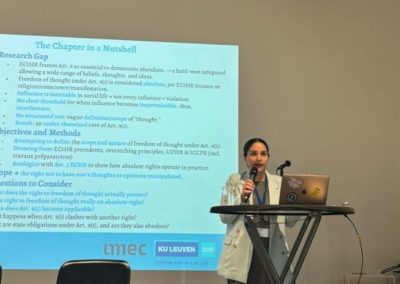The paper proposes an interdisciplinary framework combining communication studies, welfare studies and social epistemology to move beyond the so-called epistemic crisis—illustrated through media organizations’ recommender systems—and outlines implications for media governance
Authors:
Aaron Hyzen Department of Communication Studies, University of Antwerp
Hilde Van den Bulck Department of Communication, Drexel University, Philadelphia (United States)
Manuel Puppis Department of Communication and Media Research, University of Fribourg (Switzerland)
Michelle Kulig
Steve Paulussen Department of Communication Studies, University of Antwerp
DOI: 10.1093/ct/qtaf018
Abstract
Working with the concept of epistemic welfare, defined as creating and maintaining the conditions and capabilities for individuals’ epistemic agency in the public sphere, this contribution provides a theoretical framework to demonstrate a way out of what has been described as an epistemic crisis, illustrating this with the case of algorithmic recommender systems used by media organizations. First, we identify the processes of datafication, algorithmization and platformization and their impact on the public sphere, specifically how they disrupt knowledge production, dissemination and acquisition. Next, we combine social epistemology, welfare studies and communication research to build a framework that allows analyzing how well communicative social practices, procedures and institutions fulfill epistemic standards and, thus, contribute to individuals’ opportunities to exercise their epistemic agency and reach epistemically valuable states. Finally, we discuss epistemic welfare’s implications for media governance, i.e., building conditions and capabilities that ensure epistemic agency.




